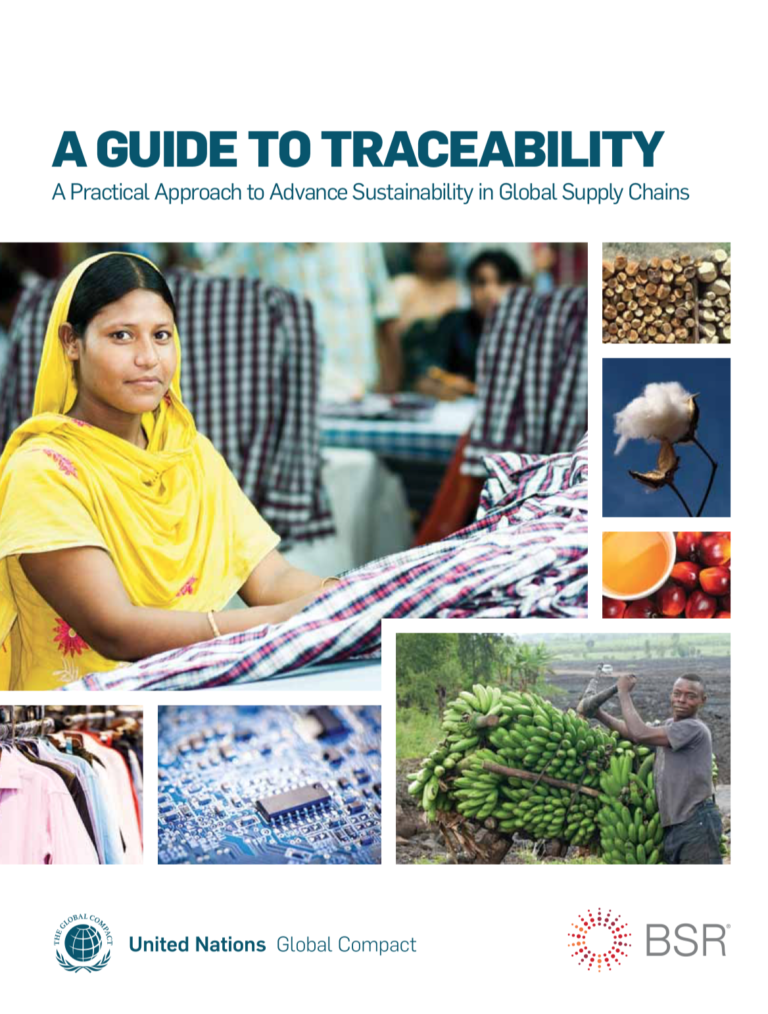The purpose of the guide is to provide an overview of the importance of traceability for sustain- ability purposes, outline the global opportunities and challenges it represents and summarize practical steps for implementing traceability programmes within companies.
The guide is primarily aimed at supply chains, procurement, sourcing and sustainability profes- sionals who seek to improve the sustainability of their companies’ supply chains, and who are considering traceability. Individuals already engaged in traceability in some way and those who are new to the topic will gain value from this guide.
This guide is divided into three sections:
• In Part 1, the guide defines traceability and explores its history, benefits and challenges,
including an overview of current cooperative schemes on traceability;
• In Part 2, the guide demonstrates a model for best practice in traceability, and provides an overview of the different models of traceability and the global initiatives operating in
the arena;
• In Part 3, the guide provides guidance to companies around the world, large and small,
on how to effectively engage in traceability.

